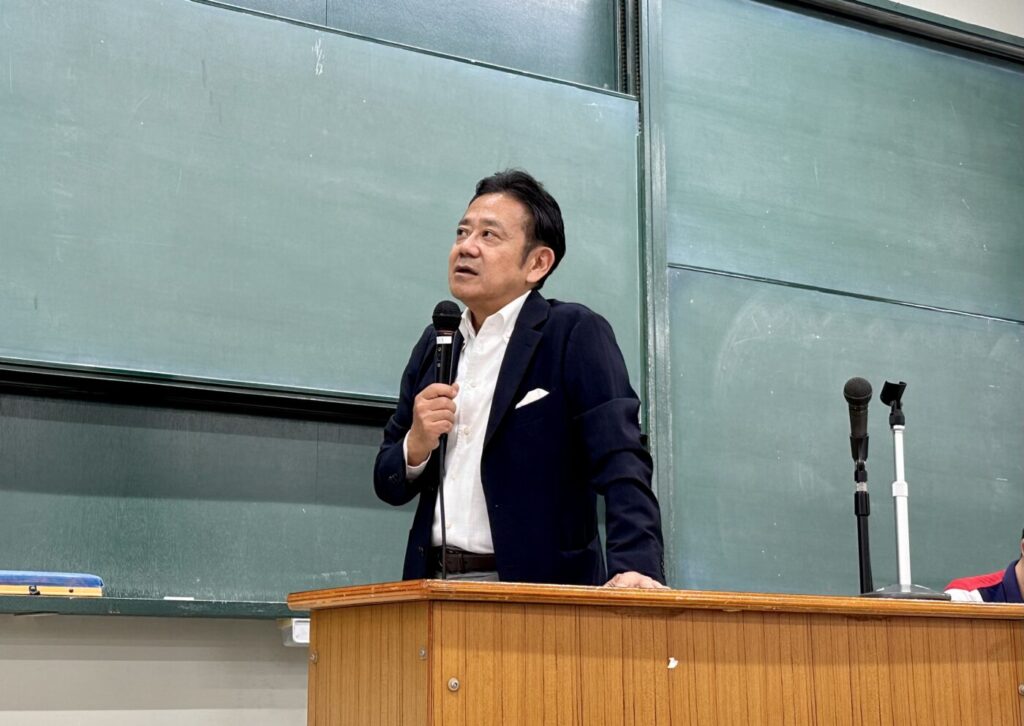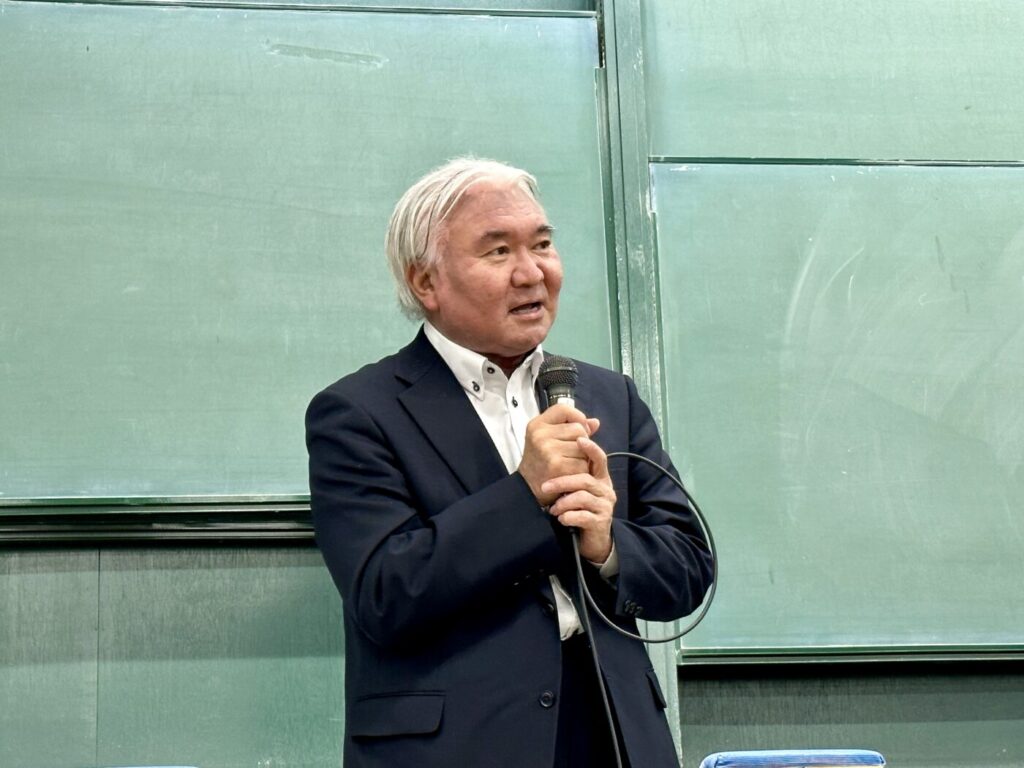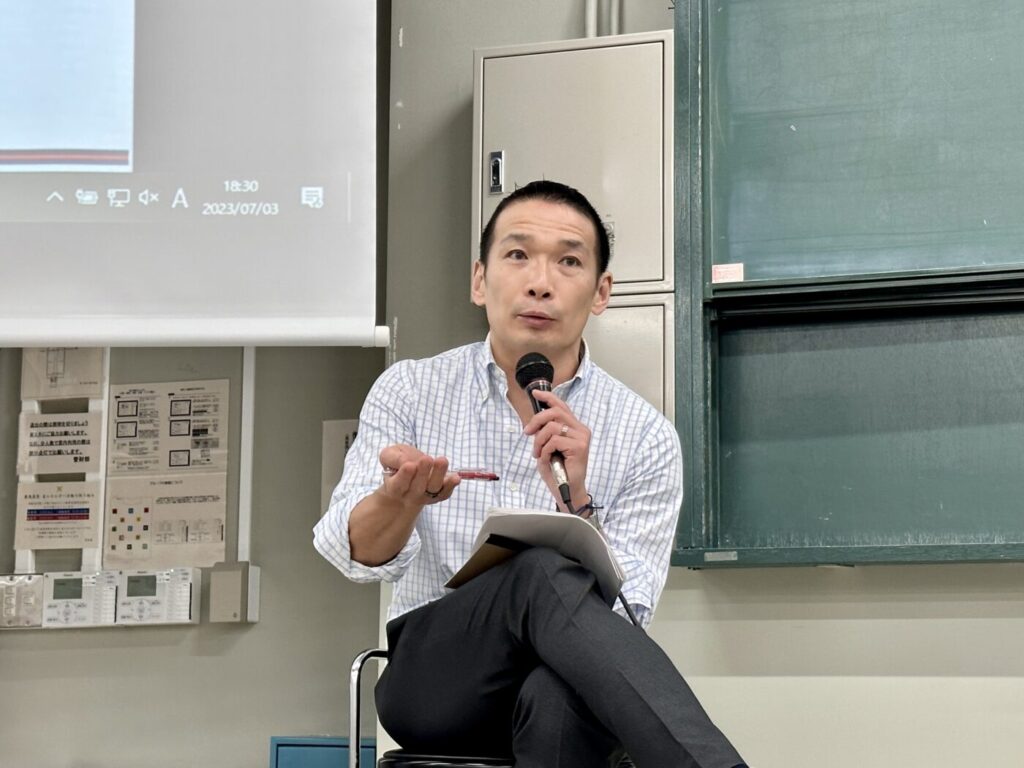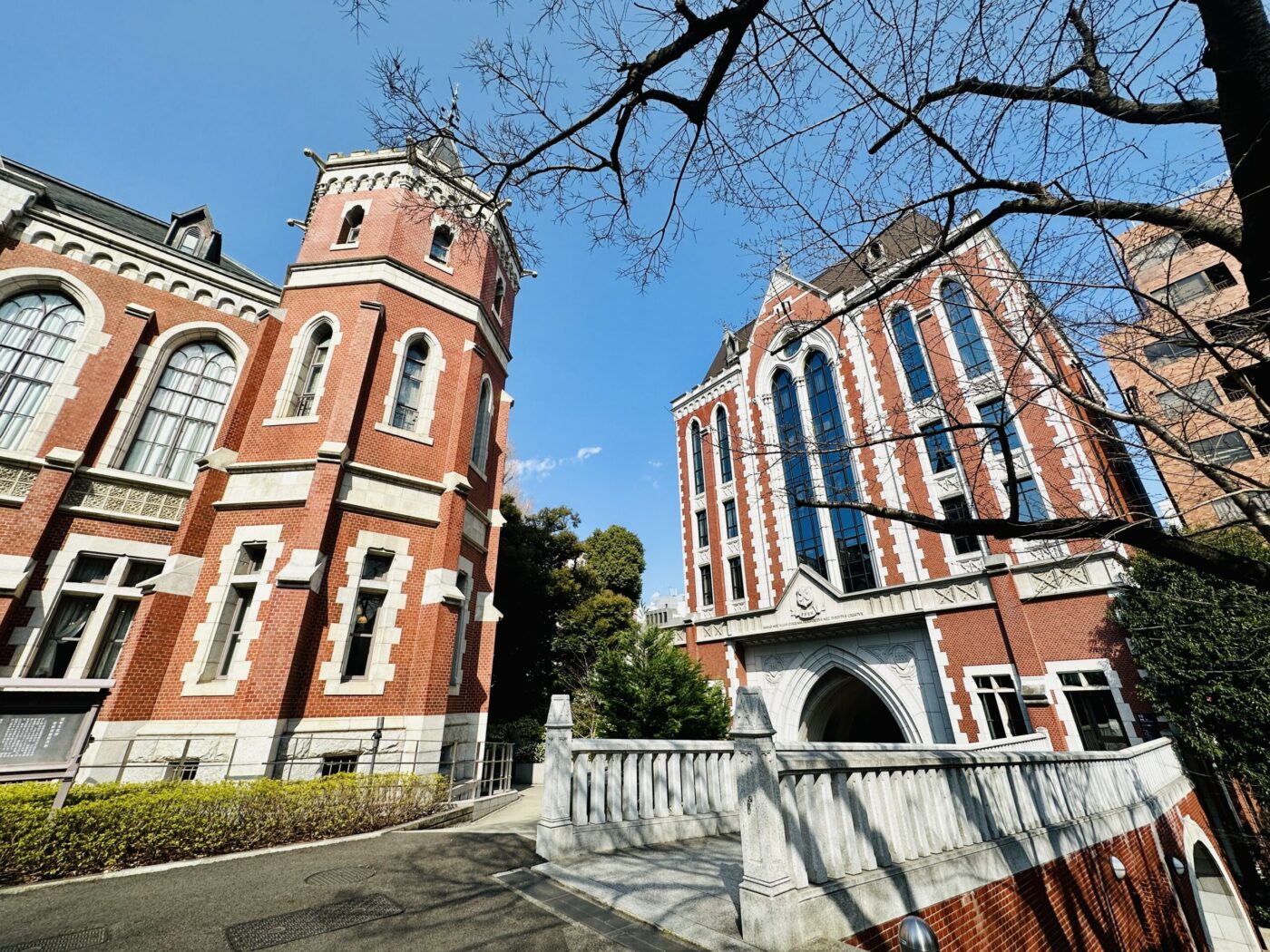Today’s lecture flow
▼Professor Tamura- (Lecture) Negotiation Methods in Conflicts
▼Mr. Sadaaki Suwazono, TA Koyama – (Exercise) Developing practical skills through mock negotiation
In this session, we learned how to deal with difficult negotiations: what kind of mindset one should have when in a tense conflict situation with a negotiation partner.There are several factors, but in particular, the participants talked about the importance of the concept of “not expecting too much from the other party,” which is something they are keenly aware of as working professionals.
In the second half of the session, we conducted a mock negotiation between three parties for the first time, using a case that was more difficult than the previous one.In previous cases, no special prerequisite knowledge was required, but this case required specialized knowledge, and many students seemed to find it difficult.In previous cases, no special prerequisite knowledge was required, but this case required specialized knowledge, and many students seemed to find it difficult.In addition, we were able to deepen our learning by having Professor Sadaaki Suwazono of Tokyo University of Science, who has actually experienced many difficult negotiations, visit us this time.
Learning of the students – Extracts from the reflection sheets submitted after the lectures
● Fourth-year student in the Department of Law, Faculty of Political Science
Compared to previous cases, it was much more difficult to reach an agreement.I also felt that it was important to go back to the basics because of the difficulty of reaching an agreement.
Our group was not able to reach an agreement.We spent so much time sharing our respective prerequisites that the time came when we had come to a single consensus proposal.
This class made me realize how important it is to maintain a basic attitude of listening, no matter how difficult the situation may be.
● Third-year student in the Department of Law, Faculty of Law
In today’s case, I strongly felt the difficulty of the position of the Fair Trade Commission.When faced with a conflict, if the Fair Trade Commission makes a mistake in the way it presents conditions, it will not only have a major impact on all matters discussed, but will also be deeply involved in the future trading situation.Unlike the approach of the other two roles, it seems that the JFTC’s decision here was directly related to how others would evaluate the significance of their existence.Therefore, the phase of opinion adjustment in this case was very difficult because the three parties had three different approaches and ideals toward the matters discussed.
In order to have the actions that were deemed negative from an external perspective acknowledged in light of these circumstances, I felt that it was important to demonstrate how much they considered the interests of general consumers and how much they were not acting only in the national interest from a medium- to long-term perspective.In this respect, I think we were able to have discussions while reconciling our respective interests.
Although I felt the difficulty of the negotiations, which were a step forward from the previous ones and not straightforward, I felt that I was able to get in touch with the essence of the negotiations.



 Twitter
Twitter Instagram
Instagram
